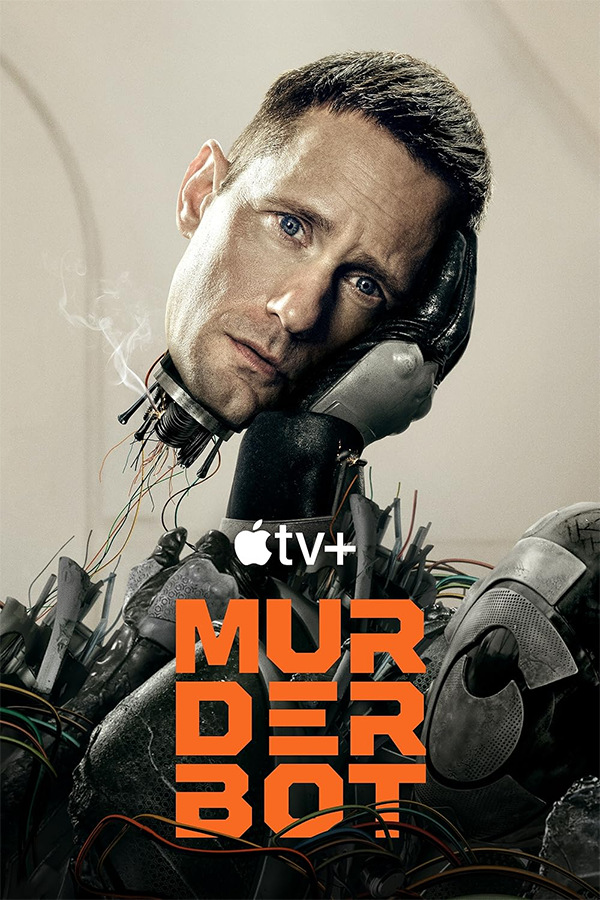Vi pratar Murderbot med Martha Wells
Martha Wells har länge varit ett respekterat namn inom fantastikgenren, men det stora genombrottet kom 2017 med The Murderbot Diaries. Vi fick en exklusiv intervju med henne och passade på att fråga om den nya tv-serien, det kommande boksläppet och om skrivandets kraft i en komplex värld.
Under många år var författarskapet blott en hobby, men 2017 förändrades allt. Med All Systems Red nådde Martha Wells slutligen den breda massan. Idag är hennes The Murderbot Diaries obligatorisk sf-läsning, och har precis blivit tv-serie på Apple TV+. Och i höst släpper hon sin nya bok Queen Demon.
Hi Martha! Thank you for taking the time to answer our questions. Your series The Murderbot Diaries has received fantastic reviews worldwide and it has now been turned into a TV series. What was your initial reaction when the project became official?
– I was so delighted. Depth of Field had been working on it for so long, and to have it actually start production was just so exciting. It was something I had been hoping for, but I knew the chances of a TV show making it all the way from option through development to the screen weren’t good. So it was just such an incredible moment when it was actually greenlit for production.
How involved were you in the adaptation process of Murderbot? And what’s it been like seeing your work interpreted by others? (Especially with Swedish Alexander Skarsgård attached to the project?)
– I was very involved, from early 2021 on. I read the early scripts and looked at production paintings and talked a lot with Paul and Chris Weitz about how things would look and the changes that would have to be made. I really enjoyed that whole process. And it was even more exciting when Alexander Skarsgård was signed to play Murderbot. I think that’s when it finally dawned on me that this was really going to happen!

Martha Wells i vår butik i Göteborg sommaren 2023.
From your perspective as a writer, what do you think are the biggest challenges (or joys) of translating an internal, emotionally complex character like Murderbot to a visual medium?
– I think it was very challenging, but that’s really the core of creating an adaptation of a book, taking an internal prose narrative and turning it into a visual narrative. It’s difficult to do right, but Paul and Chris are experts at it, and the result is so satisfying to watch. Getting to see other really talented and creative people expand on what I had written and make it basically three dimensional was one of the really fascinating parts of the process. And then watching the actors, who are all so fantastic and so well cast, come in and take the scripts and just make it come to life was a dream come true.
This fall you will be releasing your new book Queen Demon – which is the second part of the book series The Rising World and the sequel to the book Witch King. How has the world or your perspective on it evolved since your last visit?
– For Queen Demon, I was able to take a lot of the brief references planted in the first book and expand on them, and weave them more into the plot. It gave me the chance to elaborate more on incidents and elements in the world’s history that made the characters who they are, and give the reader a better understanding of how much the past still affects the present to such a large extent.
I think Queen Demon makes it even more clear that this is very much a world scarred by trauma, that’s still in the process of rebuilding. This expansion and deeper understanding is a part of world building that I enjoy the most, and it’s been helpful to me to write about right now, to deal with my own feelings about what’s going on in the real world.
The Rising World series features strong elements of court intrigue and magic. How do you approach balancing political complexity with action and adventure?
– The political complexity is what underlies all the motives of the characters, so it’s really driving the action and all the choices the characters make, which for me makes it easy and natural to balance it out. The politics underlying everything in the plot also gives more urgency to the action. It’s not just the characters’ personal survival at stake, their decisions and actions are important to the future of the world they live in. Also, I think being able to show more of the characters’ past, the choices they made during the war and how it affected them, makes their actions in the present more poignant.
